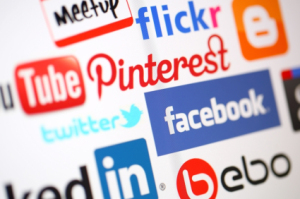
Special to Online Career Tips
Social media has definitely opened up the floodgates of communication and provided limitless opportunity for people to connect while also affording businesses new chances to brand themselves. However, social media offers another opportunity to its users. Namely, to look like a grammar idiot—like someone who completely bypassed elementary English class on their way to log on to Twitter or Facebook.
Yes, I am talking to you. The person who makes the statement, “Their isnt a better show on TV then Modern Famile.” Or the person that tells another, “Your Welcome.” Frankly, these examples make me cringe and seeing that someone doesn’t understand the difference between there, their and they’re is quite honestly my biggest pet peeve.
#BadGrammar, #CommonErrors and #SloppyWriting
Now, I am not a complete Grammar Nazi and I realize everyone makes mistakes, especially when you are trying to quickly update your status or type out a 140 character tweet. But I think what bothers me the most is that the mistakes being made are ones that people should automatically realize prior to publishing, because you know, the majority of us did attend English class in 3rd grade. We should know better. So, this leads me to believe one of two things:
- People don’t care.
- People don’t proofread.
At the same time, I also believe that, when it comes to social media writing, there is a definite divide over when good grammar is absolutely imperative and when maybe it’s less important. For instance, while I fear for future generations when they actually have to sit in a cube at a corporate job and type out a well-worded email to their client or their boss and feel perplexed when they realize they can’t use OMG, plz, np and tu as acronyms, I also think that those individuals are going to have to figure it out one way or the other if they want to have any sort of real career. Instead, the group that I worry about most is the current business owners and professionals who recognize social media platforms as part of their marketing plan. Here is a group of busy people who knowingly take to Twitter, Facebook and other platforms and destroy the English language at the same time they hope to bring in new businesses.
Between you and me, the business that tries to lure me in with a post rife with grammar issues only inspires me to do one thing and that is run the opposite way screaming.
Grammar Drama
I am not trying to say that I never make mistakes or find a typo too late. But even when considering my own business and the spelling of my company’s name, “Grammar Chic, Inc.,” it must be said that I realized I could possibly lose out on business because of a typo. This is why I not only own the domain names related to the correct spelling of my company’s name, but also all of the incorrect spellings, too.
GrammerChic.com, GrammerChic.net, etc.
My point: bad grammar can be expensive to business; no matter if you are talking about domain names that honor misspellings or if you are considering the impression a grammatically incorrect post makes on followers.
Respecting Language Earns Respect on Social Media
So, I get it, these spelling mistakes, they are just on social media. So it’s no biggie because here is a platform that is ever changing and people forget quickly.
Or do they?
Personally, I think that if a business consistently showcases bad grammar or a professional person constantly puts out posts or information rife with errors, it can haunt them. True, you might be able to delete a post after you realize you messed up “its” and “it’s.” But if that post has been retweeted or shared or promoted by others in any way, it’s ultimately permanent and your grammar error will stay alive and well in cyberspace forever.
From my personal perspective as an owner of a writing and editing company, I believe that you must proof and review every single item that you create. No matter if it is a press release that is being sent out over the wire or a tweet talking about your company’s latest promotion. If you’re not doing this, you could face trouble and if you simply don’t care, I can tell you that someone out there—your boss, a client or even a competitor—is going to, and they are most likely going to call you out on it.
Simply put, no one wants to look like an idiot. You might be a high powered professional wearing a $3,000 suit, but the moment you tweet to all of your followers that “Irregardless of what the criticks say, ABC Company noes what their doing!” you have ultimately been placed in the social media corner with a dunce cap on.
The moral of the story: bad grammar not only hinders your social media marketing efforts, it has the ability to crush any credibility or authority you may have in your respective field. If you are worried about what your social media posts not only say, but also how they reflect your grammar skills, reach out to Grammar Chic, Inc. for help. Not only do we offer proofreading and editing services; we have the ability to work with you to create social media content that is polished, strategic and on-point. Call 803-831-7444 or email info@grammarchic.net right now.
Comments are closed.